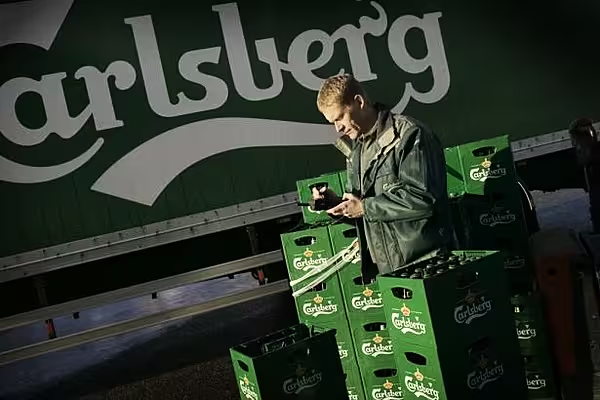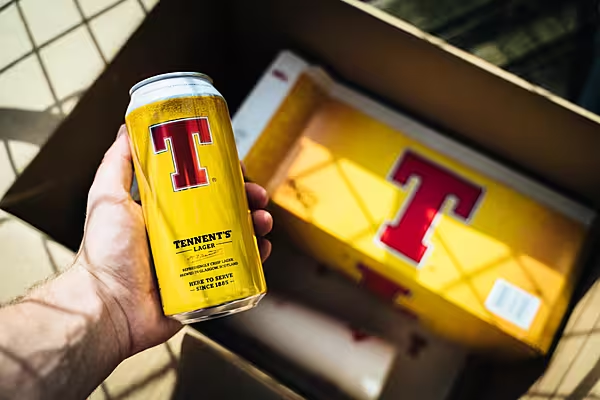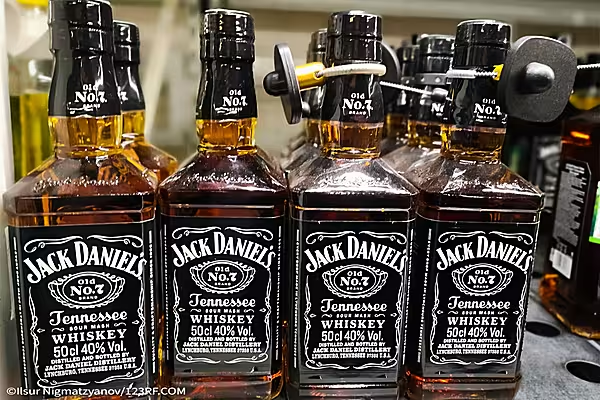When Carlsberg entered the Russian market in a big way in 2012, fully integrating the Baltika brand into its operations, it was seen as a licence to print money.
Baltika, after all, held more than a third of the Russian market, and consumers there were quickly moving away from more traditional tipples, such as vodka, to embrace beer. Now, however, that ‘Russian bear’ is resembling an albatross around the company’s neck.
Reporting its full-year sales this week, Carlsberg said that while revenues were healthy, at DKK 61.8 billion, its profits took a hit, with consolidated profits falling to DKK 2.1 billion last year, down from DKK 4.9 billion the year before.
Volumes were also down, with Carlsberg selling 112.4 million hectolitres of beer last year, compared to 116.9 million hectolitres in 2016 and a whopping 120.3 million hectolitres in 2015.
Russian Regulations
The reason? New Russian regulations that ban the sale of alcoholic drinks in PET bottles of 1.5 litres or more, which came into force last July, backed by strict fines for producers and retailers that break the legislation.
As Carlsberg said at the time, around 15% of Baltika sales were in PET bottles of 1.5 litres or more, meaning that such legislation would hit the brewer quite significantly.
“This legislative restriction of production and turnover of alcoholic products in PET bottles will definitely have a negative impact on enterprises of the brewing industry,” a Baltika spokesperson said at the start of last year, and so this has come to pass.
Carlsberg saw a volume decline of 14%, according to its full-year figures, with the overall Russian beer market declining by 4%-5% for the year, due to the downsizing of PET bottles.
In its statement, Carlsberg said that Russian volumes and market share were “severely impacted by the PET downsizing”, and that the brand decided to adopt a “value-based approach” in order to counter this.
“Consequently, our products in the PET segment were priced at a premium, vis-à-vis the average price points in the market, resulting in market-share loss,” it noted.
“Russia is no longer the overwhelming contributor to Carlsberg’s profits that it once was,” RBC analyst James Edwardes Jones said via a briefing note.
It’s not the first time that Carlsberg has had difficulties in Russia, of course. In 2014, it saw volumes decline by as much as 7% due to the “uncertain environment” presented by tensions between Russian and Ukraine.
Unlike that situation, however, the new PET legislation seems to be permanent, meaning that the brewer will need to change its strategy going forward, to maintain its healthy lead over competitors.
Not All Bad
Carlsberg can take heart, however, from the fact that while Russia remains something of a problem child, almost all of its Western European markets delivered profit growth in 2017.
In addition, its ‘Funding The Journey’ and ‘Sail 22’ initiatives, aimed at optimising the business and positioning it more strongly to meet changing consumer habits, are progressing well.
‘Funding the Journey,’ for example, delivered accumulated benefits of around DKK 1.7 billion for 2016 and 2017, Carlsberg announced, and the company believes that it will “deliver around DKK 2.3 billion – well above our initial expectations of DKK 1.5-2.0 billion”, according to chief executive Cees ’t Hart.
“During the year, we invested DKK 500 million in our strategic growth priorities, which should lead to healthy and sustainable top- and bottom-line growth going forward,” ’t Hart continued.
These measures should, the company anticipates, deliver a stronger, better Carlsberg going forward, even if Russia takes some time to get back on track.
© 2018 European Supermarket Magazine – your source for the latest retail news. Article by Stephen Wynne-Jones. Click subscribe to sign up to ESM: The European Supermarket Magazine.














